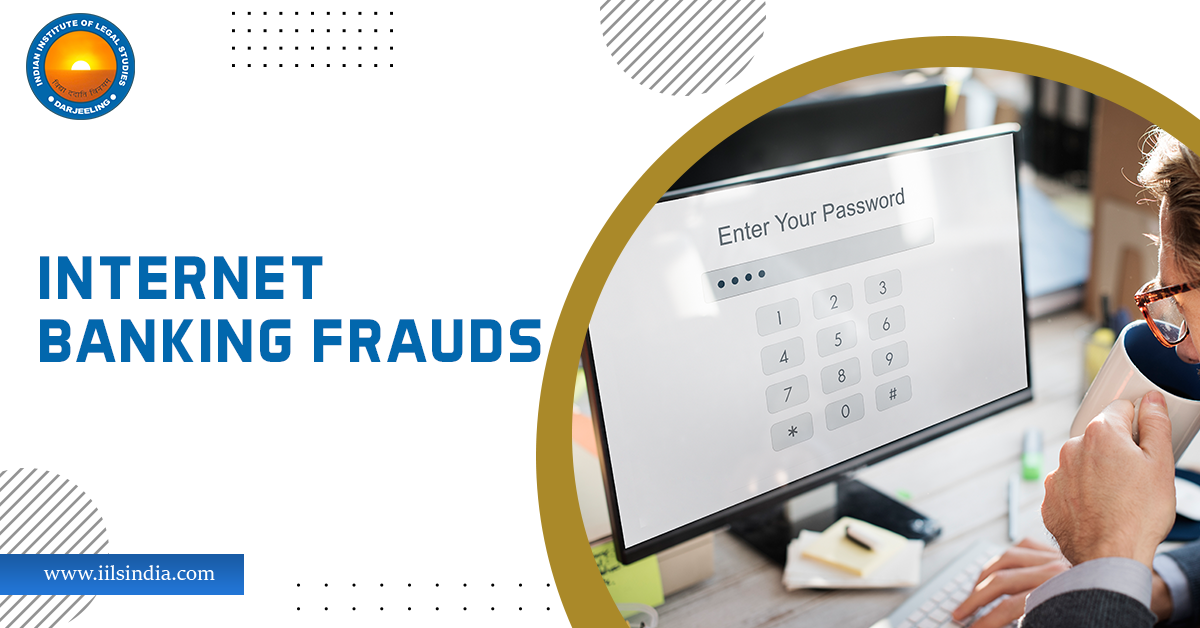In traditional banking, a customer has to visit a branch for availing the banking operations. In Internet banking, a customer can avail the same services without visiting the branch itself. Internet banking ensures efficiency and any time availability. It also saves time & money. Ultimately, it improves operating efficiency and overall profitability of the banks. In Indian perspective, ICICI Bank had initiated internet banking services and thereafter other private as well as public sector banks had followed the trend. But, at the same time fraudsters are committing various internet banking frauds which is a matter of grave concern for all of us.
As taught in 3-year LL.B. Course in West Bengal, there are various modes of commission of internet banking frauds. In hacking, the fraudster obtains unauthorized access to the computer, computer system or computer network and thereby hack the bank’s website and customer’s account. In SIM Swapping, the fraudster manages to obtain a new SIM card against the registered mobile number of the account holder. Thereafter he obtains one time password in the new number and commits financial frauds. In vishing, the fraudster makes suspicious phone calls and obtain vital details of the customer. In smishing the fraudster sends suspicious messages to the customer and compels him to call back on a fraudulent mobile number, visit fraudulent websites or download malicious content via mobile phone or the internet.
In phishing, the fraudster sends email soliciting vital details of the customer which appears to be from a legitimate origin. But, in fact it comes from a malicious origin. In money mule the fraudsters use other person’s bank account to store the stolen or illegal money. When the police initiates investigation into the matter, those innocent persons become the victim. In trojan virus, a software is used which compels the customer to install and run malicious software. It destroys the existing files and leads to data theft. In keystroke logging, a virus is installed into the computer system of the customer. Thereafter it records actual keystrokes and mouse clicks. This is dangerous because it captures the customer ID as well as password of the customer which can be used for committing internet banking frauds.
The internet banking frauds is an offence against the entire society. It has also an adverse impact on the national economy. As taught in Legal Study in West Bengal, the Information Technology Act,2000 as amended shall apply to internet banking frauds. It overrides the Indian Penal Code,1860 which is a general law. The Reserve Bank of India, being the apex body frames rules and regulations for the banks. In case of customers, there will be zero liability if the unauthorized transaction takes place due to fraud or negligence on the part of the bank or any kind of third-party breach. It should be reported within 3 working days from the date of receiving the communication of fraudulent transaction. In cases where the matter is reported within 4-7 working days of receiving the communication of fraudulent transaction, the liability is limited to the transaction value or Rs 5000/- whichever is lower. In case the matter is reported beyond 7 working days, the liability of the customer is limited as per Bank’s approved policy. The banks should endeavor to resolve the complaints within 90 days from the date of reporting of the internet banking frauds. In case of ATM/Debit Card frauds, the banks will ensure that the customer does not lose any interest and in case of Credit Card frauds, the customers will not accrue any additional interest or fine.
Once a person becomes a victim of internet banking fraud, he needs to block his ATM/Debit or Credit Card and account. He needs to raise a formal complaint regarding the same. For this purpose, he should possess bank statement of the last six months, a copy of SMSs received in the registered mobile number, a copy of valid identity as well as address proof, a copy of the complaint lodged in the nearest police station. If the fraud has been committed through malicious app, then the details of such malicious app and the location from where it was downloaded should be mentioned in the complaint.
After demonetization Cashless Economy or Digital India became popular. During COVID-19 pandemic, people were completely dependent upon e-banking. But the internet banking frauds are accelerating at an accelerating rate. The government should set up dedicated cyber cells with trained police personnel. The government should focus on digital literacy. The banks should also spread awareness for prevention of the internet banking frauds. Also, the customers should not share their personal as well as vital details with anyone. They should not click on any suspicious link. They should use updated versions of banking apps as well as antivirus software’s. In today’s era, internet banking has become a necessity. In order to prevent the internet banking frauds, all the stakeholders should work in a coordinated manner.

